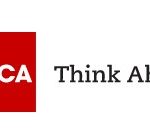The Association of Chartered Certified Accountants (ACCA) has announced that City West Water, Sydney Water and Watercare have been jointly awarded the best sustainability report award in this year’s ACCA Australia and New Zealand Sustainability Reporting Awards, sponsored by KPMG. BHP Billiton was awarded the best environmental report award and Australian Ethical Investments was awarded a commendation for a sustainability report produced by a small or medium enterprise (SME).
Judges’ feedback
Commenting on the entries received for this year’s awards, the judges noted that while sustainability reporting in Australasia is showing signs of maturity, further improvement needs to be made to bring reports in this region into line with international best practice.
‘It was good to see that reports are increasingly referring to the Global Reporting Initiative. The increase in the number of entries received was also a sign that organisations are relying more and more on sustainability reports to engage with stakeholders, identify and manage risk and improve corporate governance,’ says Rachel Jackson, ACCA’s Head of Environmental and Social Issues.
‘Next year, I would like to see Australasian organisations better this year’s performance by demonstrating more meaningful stakeholder engagement processes, increasing the sophistication of external verification mechanisms and providing more useful analyses of raw data disclosed in reports,’ advises Jackson.
Rob Hogarth, KPMG Partner, Audit and Risk Advisory Services agrees, ‘We are seeing an increase in both the demand for external verification and the scope of such engagements, which is also reflected by the release of new local and international assurance standards for this type of work.’
‘Our research indicates that over 110 companies have produced such reports as at the end of 2003, and that this number is increasing by around 10 newcomers each year,’ concluded Stirling Habbitts, KPMG Manager of Environment and Sustainability Services.
KPMG is currently involved in a survey on the uptake of sustainability reporting in Australia undertaken on behalf of the Federal Government, to be published in June.
Challenge to non-reporters
ACCA received a record number of entries for its 2003 Australia and New Zealand Sustainability Reporting Awards. This year, 33 reports from some of the largest organisations in Australia and New Zealand entered the awards, up from 28 entries last year.
Entries were received in all three awards categories: environmental reporting, social reporting and full sustainability reporting.
The utilities sector was the best represented of all sectors that entered the awards. Forty-one percent of all entries were received from this sector. The government and mining sectors were the next best represented areas, each comprising 12 percent of all entries received.
ACCA and KPMG are hopeful next year will see an increase in entries from a more diverse range of industry sectors, particularly from manufacturing, agribusiness, retail and fast moving consumer goods (FMCG).
‘We would like to challenge organisations in industry sectors that haven’t traditionally produced sustainability information to embrace the concept,’ says Jackson .
‘Although producing such reports can be resource-intensive, organisations that make a commitment to be a sustainability reporter are rated above their peers. Their ability to respond to risks facing their organisation and their commitment to the long-term survival of their business are qualities that are highly regarded by both community and market alike,’ she says.
Click here to read the report of the judges (PDF ~ 164 kb)
Information for Students
The ACCA Australia and New Zealand Awards for Sustainability Reporting were launched in November 2002.
The awards aim to:
Reward and recognise organisations that report and disclose environmental, social or full sustainability information
Encourage the uptake of environmental, social and sustainability reporting
Raise awareness about corporate transparency
ACCA now holds Sustainability Reporting Awards in 20 countries across Europe , Africa , North America and Asia Pacific.
The 2003 Australia and New Zealand awards
An independent judging panel met on Friday, 26 March to assess entries.
Following is a list of entrants.
Alcoa in Australia
Argyle Diamonds
Australian Ethical Investment
BHP Billiton
Brisbane Water
British American Tobacco Australia
Cement Industry Federation
City West Water
Department of Defence
Department of Family and Community Services (FACS)
Gosford City Council
Hunter Water (environmental)
Hunter Water (sustainability)
Integral Energy
Meridian Energy
Metro Water
Murray Irrigation Limited
Murrumbidgee Irrigation
NIWA
Port Brisbane Corporation
Rio Tinto
Solid Energy
State Forests of NSW (environmental)
State Forests of NSW (sustainability)
Sydney Water
Tarong Energy
Telecom NZ
THIESS
Toyota Motor Corporation
Visy Industries
Watercare
Wesfarmers
Westpac (social)
Westpac (sustainability)
WMC Resources (nine separate reports)
Yarra Valley Water
Panel of judges
Professor Carol Adams, Head of School, School of Accounting , Economics & Finance, Deakin University
Professor Craig Deegan, Director of Research, RMIT Business Accounting & Law
Terence Jeyaretnam, Principal, URS ( Australia )
Lyn Mayes, Communication Consultant And Acting Operations Manager, New Zealand Business Council for Sustainable Development
Gabrielle McCorkell, Strategic Advisor, Environment Protection Authority Victoria
Glennys Purcell, Director, Secretariat to the Prime Minister’s Community Business Partnership, Australian Department of Family and Community Services
Criteria
Judges assessed the applications based on three key elements: completeness, credibility and communication. Entries were judged on the report itself, not on organisations’ actual sustainability performance. More information about the criteria can be found at http://www.accaglobal.com/sustainability.
Completeness 40%
Overall corporate context
Consideration and explanation of key business impacts
Policy and management commitment
Targets and objectives
Supplier procurement policies and issues
Scope of report (by entity)
Report audience identified
Credibility 35%
Internal audit processes
Compliance/non-compliance record
Relevant impact data
ISO accreditation and use of GRI
Third party statement
Communication 25%
Layout and appearance
Readability, accessibility and appropriate length
Availability of summary report and/or executive summary
Reference to web site and links
Appropriateness of graphs, illustrations and photos
Integration with financial statements



